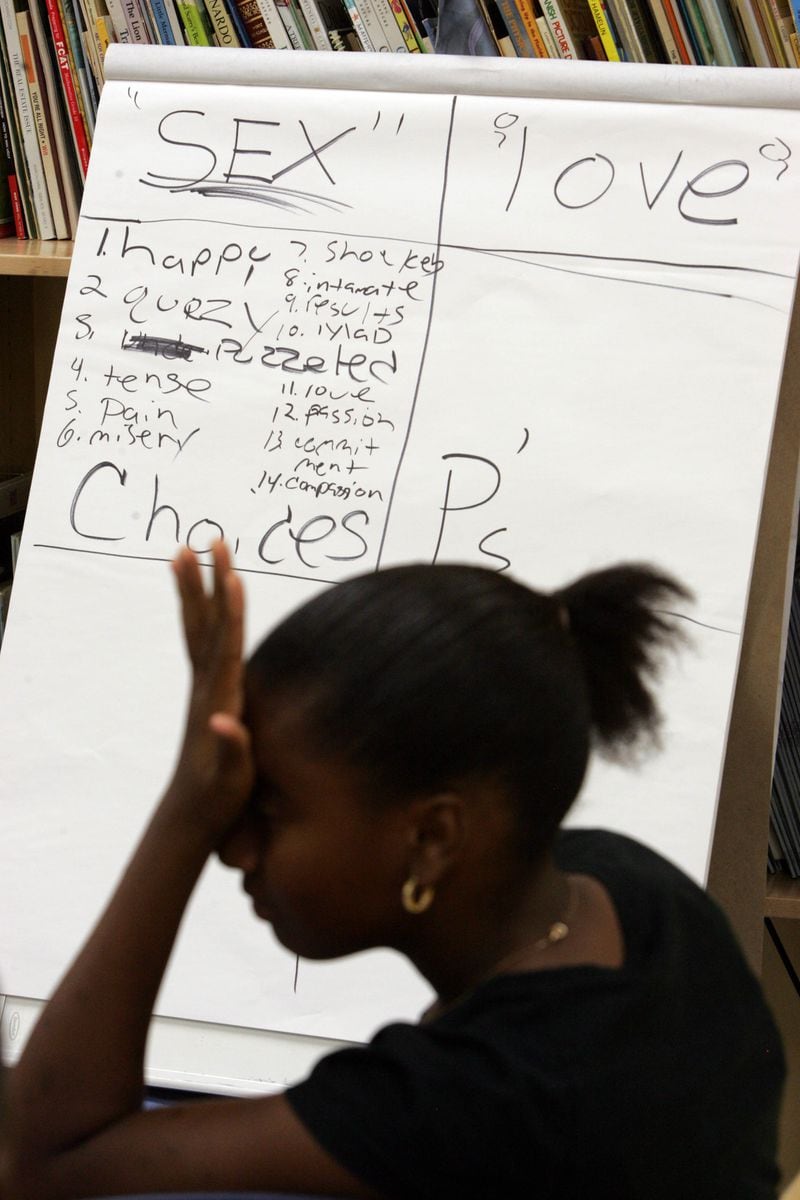Elaine Taylor-Klaus is a certified coach, a writer and an international parent-educator teaching parents how to use a ‘coach-approach’ to parenting in the 21st century.
In this piece, she addresses Fulton County’s decision to revisit its sex education curriculum.
Now sixth through 12th graders in Fulton learn from a controversial curriculum called "Choosing the Best," which Fulton officials describe as a "comprehensive, evidence-based, abstinence-centered instructional program" designed to expose students to sex education "through a risk avoidance approach."
That same program was rejected in DeKalb in 2005 after many parents complained it left children uninformed on how to protect themselves from pregnancy and disease. I attended a packed hearing in DeKalb where about a dozen scientists with kids in DeKalb schools denounced the approach.
After covering public debates on sex ed in three states, I realize many people want a curriculum based on an ideal that teens have never met. One of the most interesting discussions I had with my aunts was not only how many of their friends “had” to get married, but also how many young women in their generation lost their lives or suffered serious injury as a result of botched, back-alley abortions.
I am firmly on the side of giving kids accurate and full information, especially now that they all carry around smartphones that will provide them with all the information -- and misinformation -- about sex they could ever want.
By Elaine Taylor-Klaus
Last week we learned that the Fulton County schools were “updating” their sex education curriculum, and that parents had until this past Monday to give feedback on the updated plan.
Credit: Maureen Downey
Credit: Maureen Downey
The existing curriculum, known as “Choosing the Best,” is an abstinence-based program that sticks to very traditional roles and expectations, leaving all but the most conventional students open to scorn and shame. With below average outcomes in teen pregnancy and sexually transmitted infections, it’s past time for Fulton County Schools to join the 21st century, to use this opportunity to truly “update” the curriculum.
It is time to employ a comprehensive curriculum that uses fact-based materials to equip our teens with the information they need to make healthy and informed decisions. After all, isn’t that one of the primary jobs of parents and schools? Over and above all else, it is our responsibility to teach children responsible decision-making, age-appropriately, over time. The more we provide our children with opportunities to think through complex issues, process information and make their own judgments about what is right and wrong for them, the better they’ll be prepared for adulthood.
We’re not raising children to remain children. We are raising them to become adults. We want them to learn to weigh information and feel confident making healthy decisions for themselves. That is the foundation of the future, for our families, our communities and our businesses children who will grow into adults who can make considered thoughtful, informed choices in all aspects of their lives.
Our kids have so much that they are called upon to navigate at an early age, these days. They are exposed to images of drug use and confusing sexual images in the media at all too early an age. When our schools close them off to accurate information, they have nowhere reliable to turn.
More often than not, they rely on Google and their peers to help them process the complex information to which they are exposed. They may look further on social media, or in the mainstream media, where they can easily witness a constant barrage of violence and sexuality that is generally inappropriate to their age and development.
On the other hand, when we provide children and teens with information about adult life while they are still living in our homes, we have an opportunity to share our values with them, and, ideally, influence their thinking. Like it or not, their actions are still very much in their control. That is a reality of parenting.
But if we can inform their thinking, and instruct them in safe and healthy processes for decision-making, we can improve the outcomes for a significantly larger population of young people. Reality-based sexuality education is an ideal way for our schools to combat the incredible misinformation available to our children on the internet.
Conversely, an “abstinence-based” sexuality education curriculum prevents children from learning about the complexities of adult life under healthy, supportive adult supervision. In this day and age, it is irresponsible to put our heads in the sand and presume that withholding information from our youth is in any way preparing them well for their adult lives.
To think that we can “protect” them from the outside world is naive. But to make every effort to inform their internal world — that is full of potential. At the end of the day, the alternative to safe, comprehensive, reality-based education invites our children to seek information relevant to their future by random searches on the internet.
Fulton County — does that really make sense to anyone?







